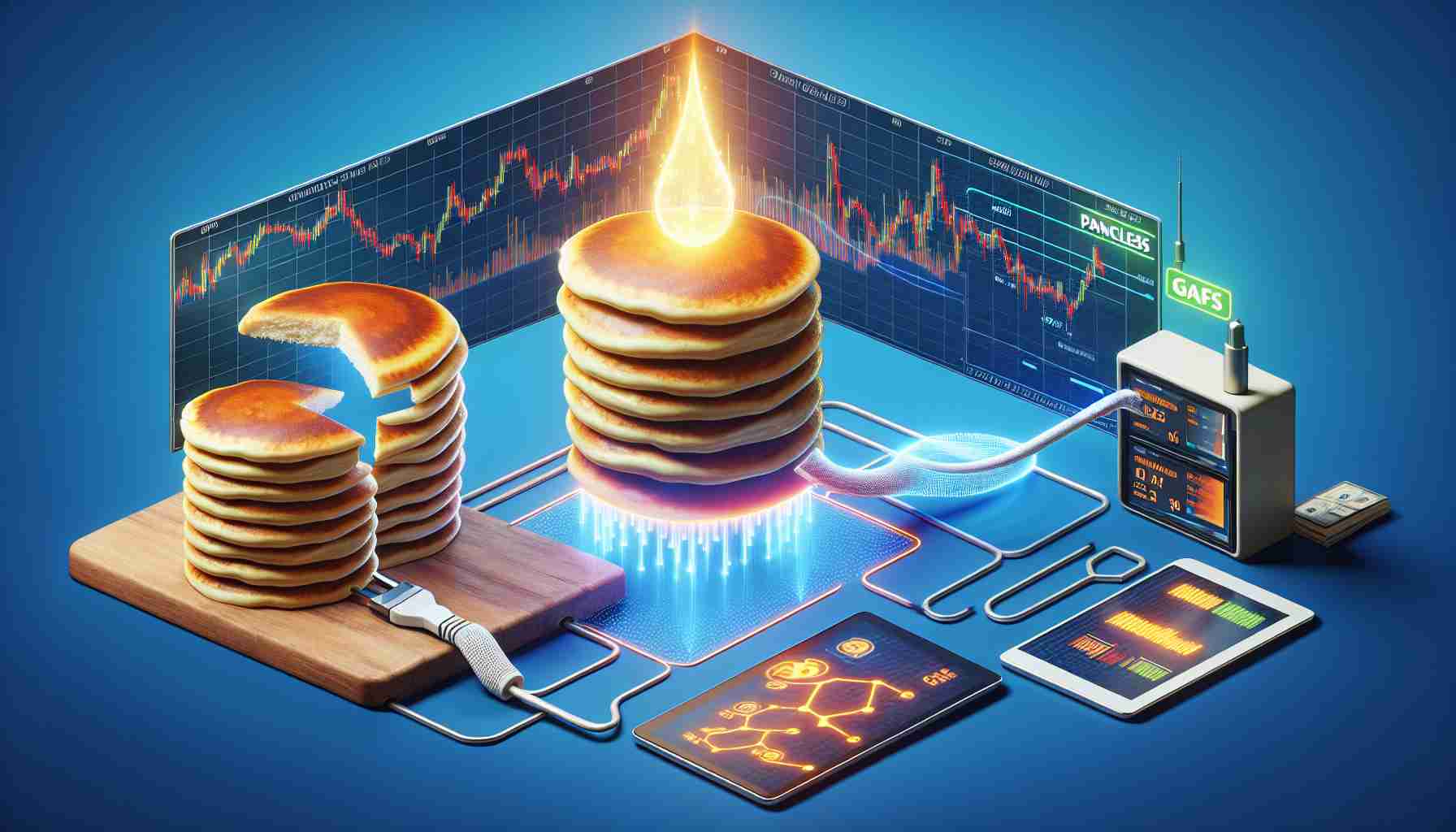Pioneering Gas-Free DeFi Transactions on PancakeSwap
PancakeSwap, a decentralized exchange at the forefront of the DeFi sector, has forged a path to easier adoption with its recent collaboration with Zyfi on the zkSync Era. This milestone allows users to engage in transactions without the burden of gas fees—a change which may considerably alter the DeFi user experience.
Traditionally, engaging with DeFi platforms necessitated owning Ether (ETH) for paying network transaction fees, deterring many due to added complexities and expenses. However, PancakeSwap’s integration allows certain token pairs to be traded without this requirement. This measure is expected to lower financial entry barriers, with the exchange and its partners absorbing the associated transaction costs.
Gas Fees Paid in ERC-20 Tokens: A Leap in DeFi Usability
The most striking feature of PancakeSwap’s update is the ability to cover gas fees using a selection of over 10 ERC-20 tokens, effectively removing the need to possess ETH solely for facilitating trades. This significant user experience enhancement embraces an extensive user base, addressing a common obstacle that has hindered decentralized exchanges in their competition with their centralized counterparts.
PancakeSwap has focused on refining its interface to be as intuitive as possible, mirroring the convenience centralized exchanges offer while also preserving the intrinsic benefits of DEXs, such as self-custody wallets. Although DEXs contribute a substantial volume of approximately $3.80 billion in daily trades, they continue to lag behind centralized exchanges like Binance in terms of sheer volume.
Further Perks: Fee Subsidies and Possible Rewards
The innovations at PancakeSwap extend to cover initial gas fees for early adopters on zkSync Era, adding an incentive for those venturing into DeFi. Additionally, the integration includes a mechanism to reward users transacting with Zyfi’s system through potential airdrops and other incentives.
PancakeSwap’s progression with Zyfi on zkSync Era underlines its commitment to making DeFi more approachable and appealing. With the removal of gas fees and a consistent push for a simplified user experience, DeFi platforms like PancakeSwap are likely to see increased mainstream participation in the near future.
Key Challenges and Controversies Associated with Gasless Trading on DeFi Platforms
A key challenge associated with introducing gasless trading on DeFi platforms like PancakeSwap is maintaining network security and preventing abuse. Gas fees have traditionally served as a deterrent against spam transactions which can clog the network. However, with the removal of gas fees, PancakeSwap and similar platforms must devise alternative methods to prevent such issues without imposing high costs on legitimate users.
Another controversy may arise regarding the sustainability of such a model. Absorbing transaction costs may not be economically feasible in the long term, especially during periods of high network congestion when gas prices can surge dramatically. This raises questions about the long-term viability of the gasless trading model and whether additional fees or other forms of monetization may eventually be required to support the infrastructure.
Advantages of Gasless Trading on PancakeSwap
The primary advantage of PancakeSwap’s move towards gasless trading is enhanced accessibility for users. By reducing the financial barriers to entry, more individuals can participate in DeFi without concerns about fluctuating gas fees. This democratization of access is likely to lead to increased liquidity and trading volumes, furthering the growth of the DeFi ecosystem.
Another advantage is the diversification of payment options for transaction fees. By allowing gas fees to be covered with various ERC-20 tokens, users are not forced to hold or acquire ETH, which simplifies the trading process and can make DeFi platforms more attractive than centralized alternatives.
Disadvantages of Gasless Trading on PancakeSwap
One potential disadvantage of this model is the pressure it places on the platform to absorb transaction costs. This could strain the platform’s revenue model unless a sustainable approach to covering these costs is implemented.
Another possible drawback is that the ease of making transactions could potentially lead to less informed trading decisions. Without the barrier of gas fees, users might execute more transactions without proper due diligence, potentially increasing the risk of loss.
For more information about decentralized finance and exchanges, please visit the main website of PancakeSwap at PancakeSwap.
In conclusion, PancakeSwap’s innovation with gasless trading seeks to address the accessibility concerns in the DeFi space by removing gas fees and offering payment of transaction fees with ERC-20 tokens. This could lead to a surge in mainstream adoption of DeFi platforms but is not without potential challenges and downsides that need to be carefully managed going forward.



